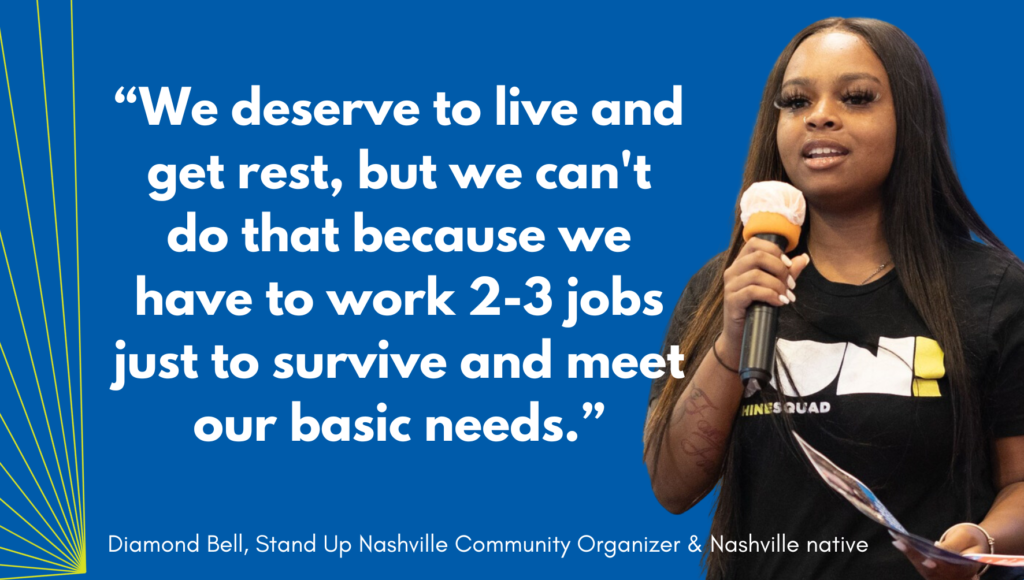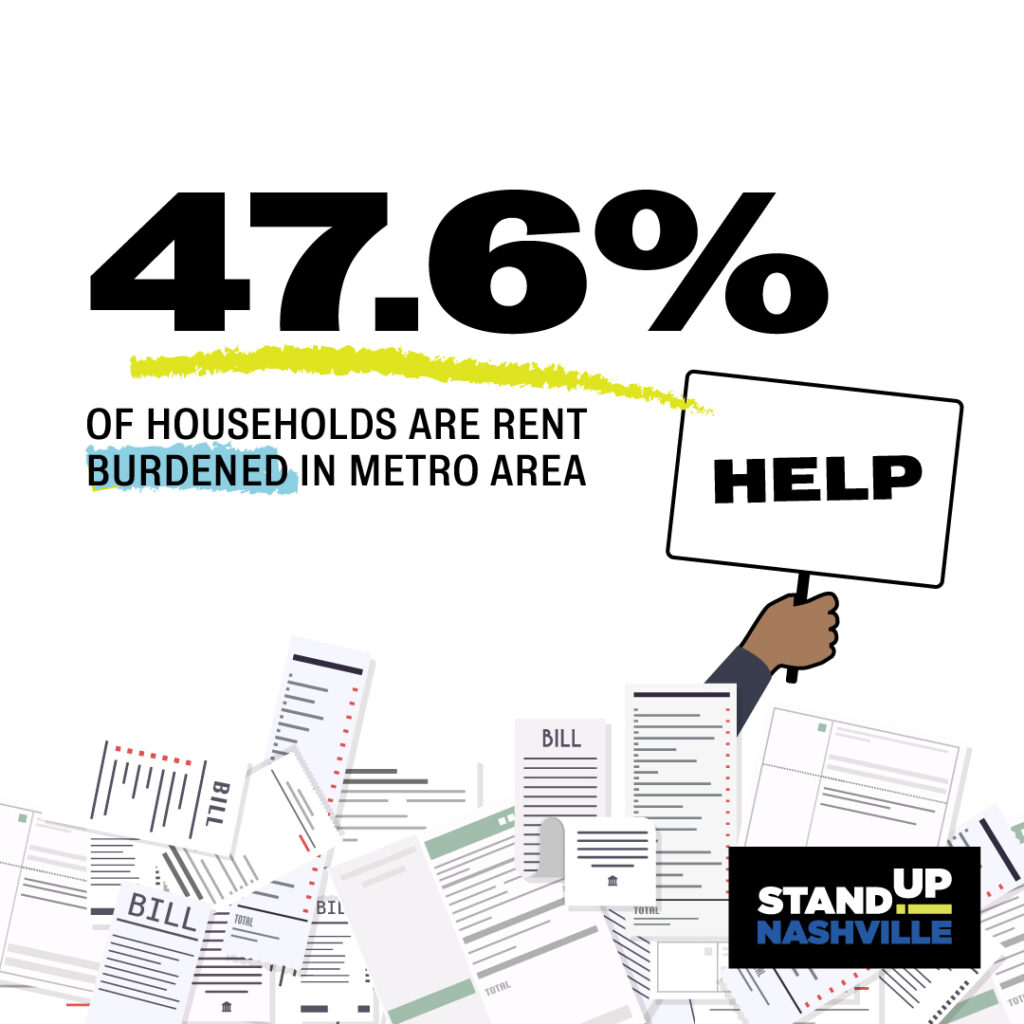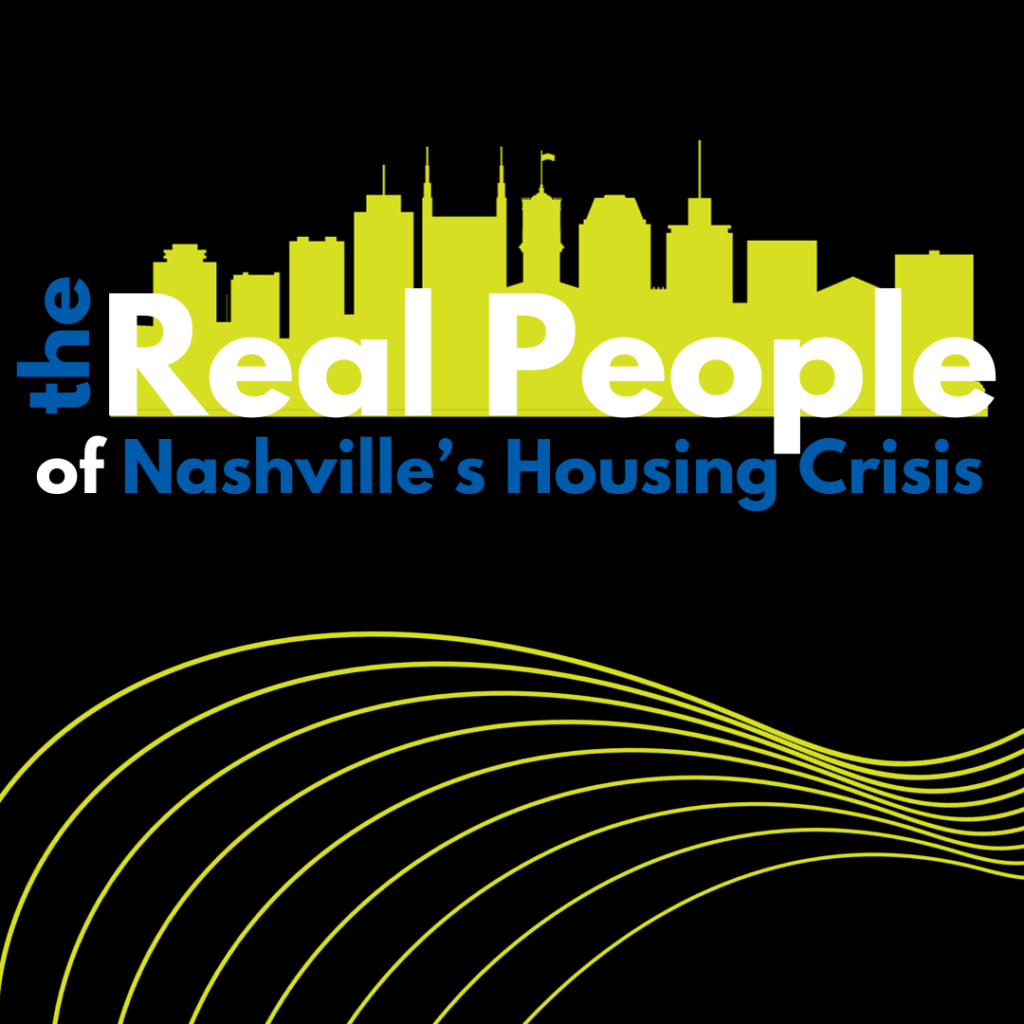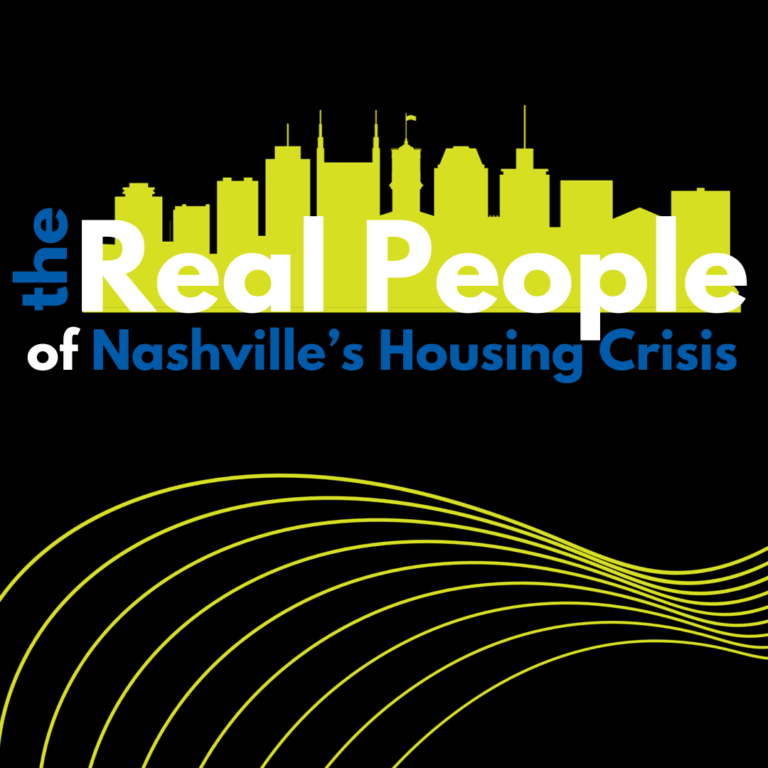Over the course of our limited series “Home Is Where You Can Afford It,” we’ve dug into the intricacies of affordable housing. We began with the history of housing discrimination against Black people, then explained popular terms and definitions used by experts, advocates, and everyday people. We asked and answered who’s to blame for the status quo, shared what the city says it is doing, and highlighted what people want the city to do. Last month, WSMV News 2 even featured Stand Up Nashville in a news story about how affordable housing disproportionately impacts Black and Hispanic people.
We found that it’s easy to talk about affordable housing as something that is needed for our neighbors and other people. Yet, some readers learned that they too are cost burdened or nearly cost burdened. Meaning 30% or more of their monthly household income is needed to cover housing costs of mortgage, rent, utilities, and homeowner association fees. The need for affordable housing is on their doorstep.
Local self-employed writer Rita N. described her cost burdened realization as, “shocking.” She explained, “I totaled what I made each month this year and used that in the calculation. I was lost for words to see the math indicate that for some months I was cost burdened and in other months I was very close to being cost burdened. I just sat there having an aha moment.” The Illinois native, has lived in southeast Nashville since moving here six years ago. “I’m all for advocating for an equitable city with opportunities and access for all, and I’ve done that. But I didn’t realize that when I rally for affordable housing and workforce housing, that I’m also doing it for myself.”


The Metro Nashville data and statistics paint a clear picture – something has to be immediately done about the lack of affordable housing and rising housing costs. The struggle isn’t limited to low-wage earners. We’re seeing two-person households, families with children, and individuals with degrees who are pressed to manage housing costs – in addition to everyday life.
Our Community Organizer Diamond Bell has held countless conversations with community members about Nashville’s housing crisis. “I worked on the RiverChase campaign last year,” she said, “It was tragic to see all those residents being evicted from their homes because a developer bought the property. Those folks had no choice but to leave the place they’d lived for so many years. Some made plans to move out of state, others had to change their kids’ schools, and some began sleeping in their vehicles.”
Diamond once met a single mother who was being abruptly kicked out of her home because the landlord sold the property and didn’t notify her in sufficient time. “Just think of how many other people that situation has happened to and it’s not being put on the news or made a priority,” reflected Diamond. In another case, she spoke to two Tennessee State University students who were frantically searching for another roommate in order to be able to afford housing that was anywhere near campus. Their off-campus living was due to TSU’s dorm shortage.
“The housing crisis is not a priority in Nashville and that’s what sickens me. These are Nashvillains that are screaming for someone to hear them and help. Homeless camps were torn down this year and there was no plan for them to be relocated somewhere else. But we’re getting new stadiums, bars, upgrades to Broadway, and tall and skinnies.”
Diamond also shared the story of a loved one living with Lupus. “She should not be working at all. But she has to work two jobs to afford housing in Bellevue where the rent is $1,500. That’s cheaper than what she would pay if she lived in the city or closer to it, which is even more sad.” Ultimately, “We deserve to live and get rest, but we can’t do that because we have to work 2-3 jobs just to survive and meet our basic needs.”


What else is the city doing to address the crisis?
Meet Metro Nashville’s Barnes Housing Trust Fund.
The Barnes Fund provides grants to nonprofit organizations (or nonprofits partnering with for-profit developers where the nonprofit maintains 51% control of the development) to create affordable housing for Davidson County residents at or below 80%, 60% or 50% area median income (AMI). This week, Metro Nashville opened the application cycle for Round 12: American Rescue Plan Act (ARPA) Special Funding. The cycle will close Monday, December 18, 2023.
The available ARPA grants are:
- Shared Housing (Homesharing) Improvements; $1.2 million funding
- Cooperative Housing for Families; $7 million funding
- Shared Equity Housing; $9,504,856 funding
Visit Nashville.gov for details on eligibility requirements, timeline, and how to submit Barnes Housing Fund Applications. Please pass this information along to nonprofit organizations within your networks.
Lastly, we invite you to share your housing story by emailing us. It may be included in this series or other Stand Up Nashville communications. Only your first name and last initial will be used.









